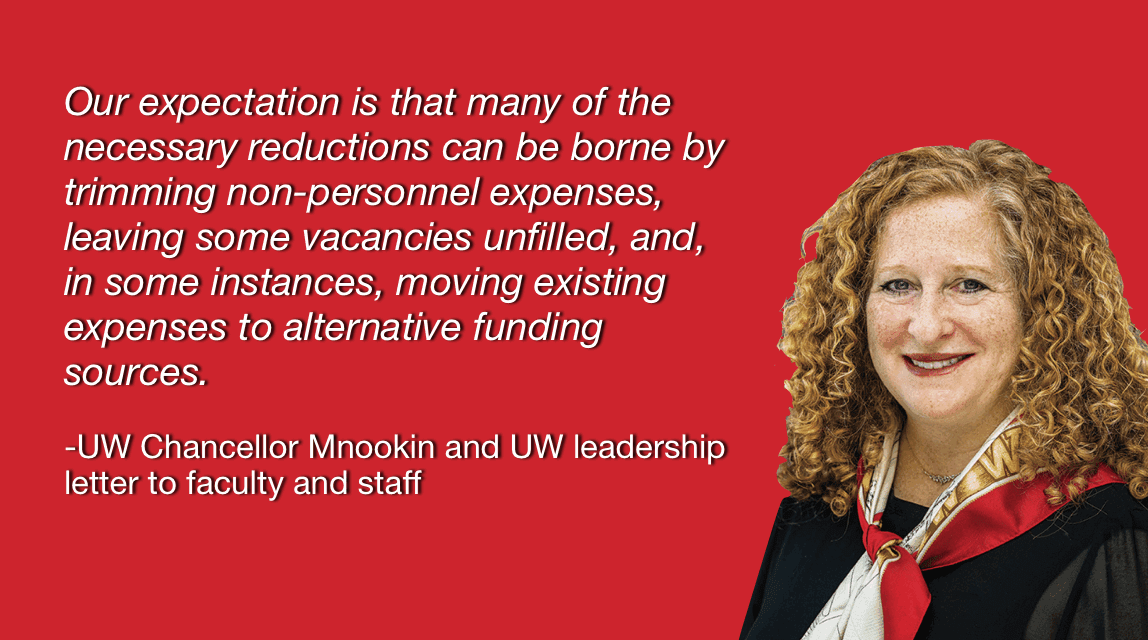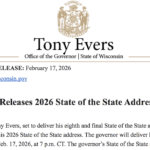MADISON, Wis. — June 23, 2025 The University of Wisconsin-Madison will reduce budgets by 5% for schools and colleges and 7% for administrative units in fiscal year 2026, Chancellor Jennifer Mnookin announced Monday, citing looming federal and state funding challenges.
In a message to faculty and staff, Mnookin, Provost Charles Isbell Jr. and Vice Chancellor for Finance and Administration Rob Cramer highlighted a potential $65 million to $130 million shortfall due to changes in federal reimbursement rates for research-related administrative costs. “We believe that by implementing these reductions now, we will be significantly better positioned to navigate the challenges ahead together,” she wrote.
The cuts follow directives issued in March 2025, when Mnookin instructed campus leaders to curb non-essential spending for the 2024-25 fiscal year. This was in response to the Trump administration’s moves to reduce federal research funding, including overhead costs. At the time, she asked units to prepare for 5% to 10% budget reductions for 2025-26, with Monday’s announcement confirming cuts at the lower end of that range.
“Today, we are announcing cost-cutting measures toward the lower end of those requested. For FY2026, schools and colleges will be required to implement base budget reductions of 5% of their FY26 101 allocation. Administrative and all other units that receive 101 funds will reduce their fund 101 base budgets by 7% of their FY26 allocation,” the letter stated.
The university faces additional strain from state budget negotiations, which have stalled in the Republican-controlled Legislature. Senate Majority Leader Devin LeMahieu, R-Oostburg, said last Thursday that his caucus withdrew from talks with Assembly Republicans and Gov. Tony Evers, stating, “These discussions are heading in a direction that taxpayers cannot afford.”
Assembly Speaker Robin Vos, R-Rochester, and Joint Finance Co-chair Mark Born, R-Beaver Dam, urged Senate Republicans to resume negotiations. In a joint statement, hey emphasized the need to ensure “tax reductions actually become law, schools continue to be funded, Medicaid patients continue to receive care, and road construction projects do not stop.”
The Joint Finance Committee has not scheduled its next meeting since canceling votes last week. Before the impasse, Republican lawmakers proposed an $87 million cut to the Universities of Wisconsin system, a move opposed by Evers, who had wanted a $855 million increase in state funding over two years for the 2025-27 biennial budget for the entire UW System, as proposed by system President Jay Rothman.
Mnookin outlined additional federal challenges, including the termination of over 90 federal grants since January 2025 and stop-work orders on others. She also noted potential restrictions on international students, who comprised 15% of UW-Madison’s 2023-24 enrollment (7,626 students), and changes to federal aid programs like Pell Grants that could affect student affordability.
To mitigate impacts, UW-Madison plans to reduce non-personnel expenses, leave some positions vacant, and shift costs to alternative funding sources. “We will prioritize safeguarding the core elements of our teaching, research, and outreach missions,” Mnookin wrote.


















